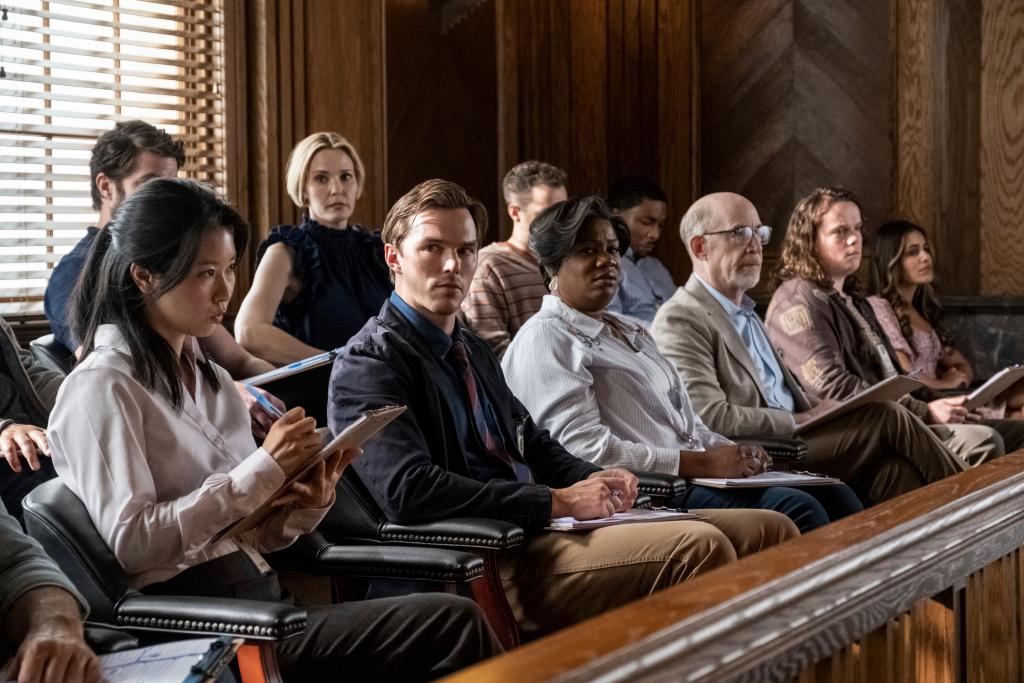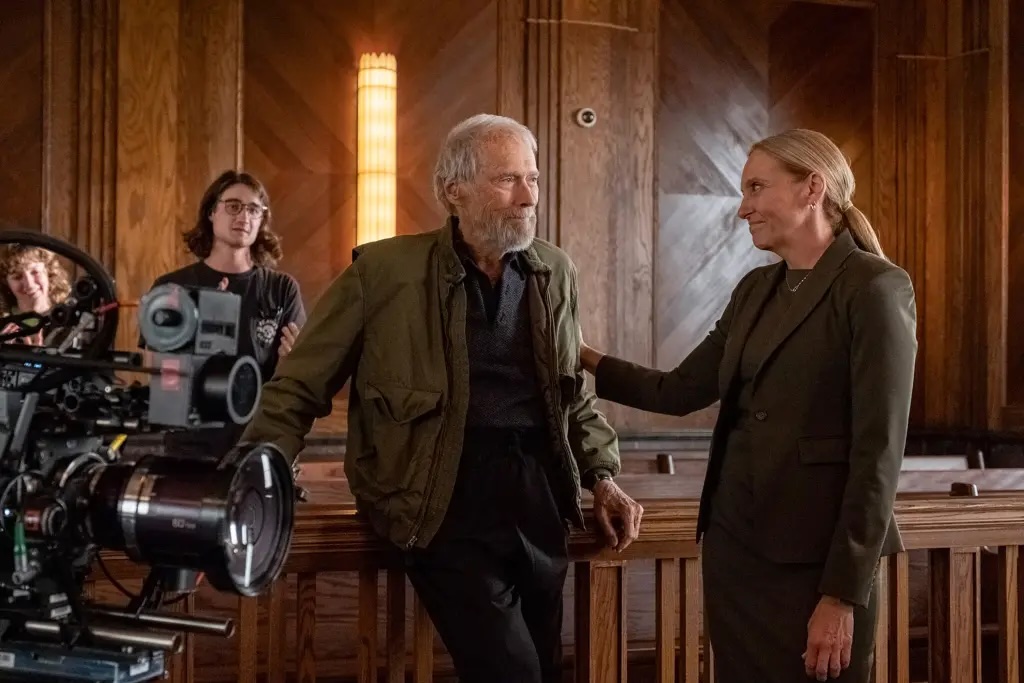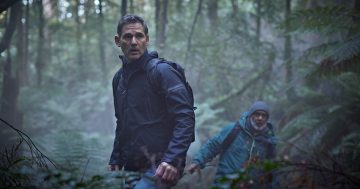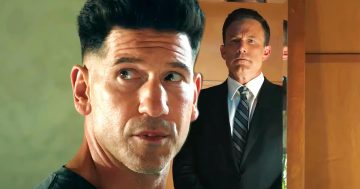
Nicholas Hoult (front row, second left) plays the title role as Justin Kemp in Juror #2. Photos: Supplied.
Sprinkling paraprosdokians into plot lines in his films is a recognised, long-time trademark of Academy Award-winning director Clint Eastwood. He likes to intentionally subvert not only genre conventions, but audience expectations, kicking in that element of surprise.
Such is the case with Eastwood’s latest offering – Juror #2 – a rivetting legal thriller co-produced and directed by Eastwood (Unforgiven, Million Dollar Baby, Gran Torino, Scully) and written by Jonathan Abrams, who launched his movie screenwriting career with this one. Abrams also wrote the book for the Broadway Huey Lewis jukebox musical The Heart of Rock and Roll.
At its core, journalist and recovering alcoholic Justin Kemp (exceptional acting by Nicholas Hoult, (The Menu, Nosferatu), a family man, finds himself struggling with a serious moral predicament while serving as a juror in a high-profile murder trial in Savannah, Georgia. The dilemma is one he could use to sway the verdict and possibly convict, or free, the accused killer. It doesn’t take long for this juror number two to work out how his life closely intertwines with that of the victim. A startling realisation of his astonishing connection leaves us in disbelief!
Actually, if Kemp says anything out loud about his growing suspicions, his life will be at risk and perhaps a falsely accused man could be set free. Through smart flashbacks, Kemp recalls driving on the stormy night, pulling up after he thought he had hit a deer, and unsuspectingly leaving the scene. Cinematographer Yves Bélanger uses clever camera angles to throw us right in the midst of the emotional upheaval, turmoil and uncertainty of that night.
The case concerns the death of Kendall Carter (Francesca Eastwood, Clint’s daughter), who had had a fight, a year earlier, with her boyfriend, James Sythe (Gabriel Basso, Hillbilly Elegy), at a bar and was later found dead under a bridge. Sythe is charged with her murder.
The storytelling style of Juror #2 is what sets it apart. The all-knowing narrative deeply probes the extent to which one man’s personal conflicts can impact not only due process, but the lives of others. It looks at vanity interlaced with the central character’s culpability. There’s also realism in character development around prejudice in jury duty.

Toni Collette with director Clint Eastwood on the set of Juror #2.
It’s fair to say Juror #2 is also a story about people, where the characters do the talking. Other cast members also deliver convincing performances. The Assistant District Attorney prosecuting the Carter case is Faith Killebrew (Toni Collette, The Sixth Sense, Little Miss Sunshine), who thinks this is a straightforward case that will accelerate her career ambitions. Collette and Hoult are reunited after playing mother and son in 2002’s About a Boy.
Chris Messina (The Boogeyman, Air) is Eric Resnick, the public defender who represents Sythe, adding just enough rational incertitude to enable the jury to find James not guilty. As Larry Lasker, a lawyer and Kemp’s Alcoholics Anonymous sponsor, Kiefer Sutherland (24, The Bad Boy) adds some equilibrium of showing openness and being considerate. J. K. Simmons (Whiplash, Being the Ricardos) is Harold, another juror, who is a former homicide detective confident with his own research.
Eastwood, who turns 95 on 31 May, has a lifetime of accomplishments as a director and actor. We can only marvel at his ability to churn out thought-provoking hits. His wide-ranging career filmography is impressive, including westerns, dramas, thrillers and war films. Prevalent mainstay themes incorporate such bulky concepts as truth, questioning the justice system, ethics and wrongdoing. Eastwood, who has acted in more than 60 films and directed 40, is a masterclass in challenging our thought processes. With nothing left to prove, a brisk energy creates an atmosphere of tangible tension.
While the focus in Juror #2 is more on personal conflicts, comparisons can be made with Mystic River and 12 Angry Men as personalities are explored, along with relationships and making difficult moral choices.
However, it’s that sense of open-endedness in a suspenseful piece of courtroom storytelling that slightly alters the rules. How much disclosure should there be? Eastwood doesn’t like to over-explain. What makes him a masterful director is that he prefers to give space so the audience can think and work a little bit out for themselves. It doesn’t need to be spoon-fed to them.
Providing an ambiguous ending is the signature touch of one of cinema’s most significant voices through seven decades. Leaving something for the audience to dwell on, thinking about the film long after the final frame with credits has rolled by!
Juror #2, directed by Clint Eastwood, is streaming on Max





